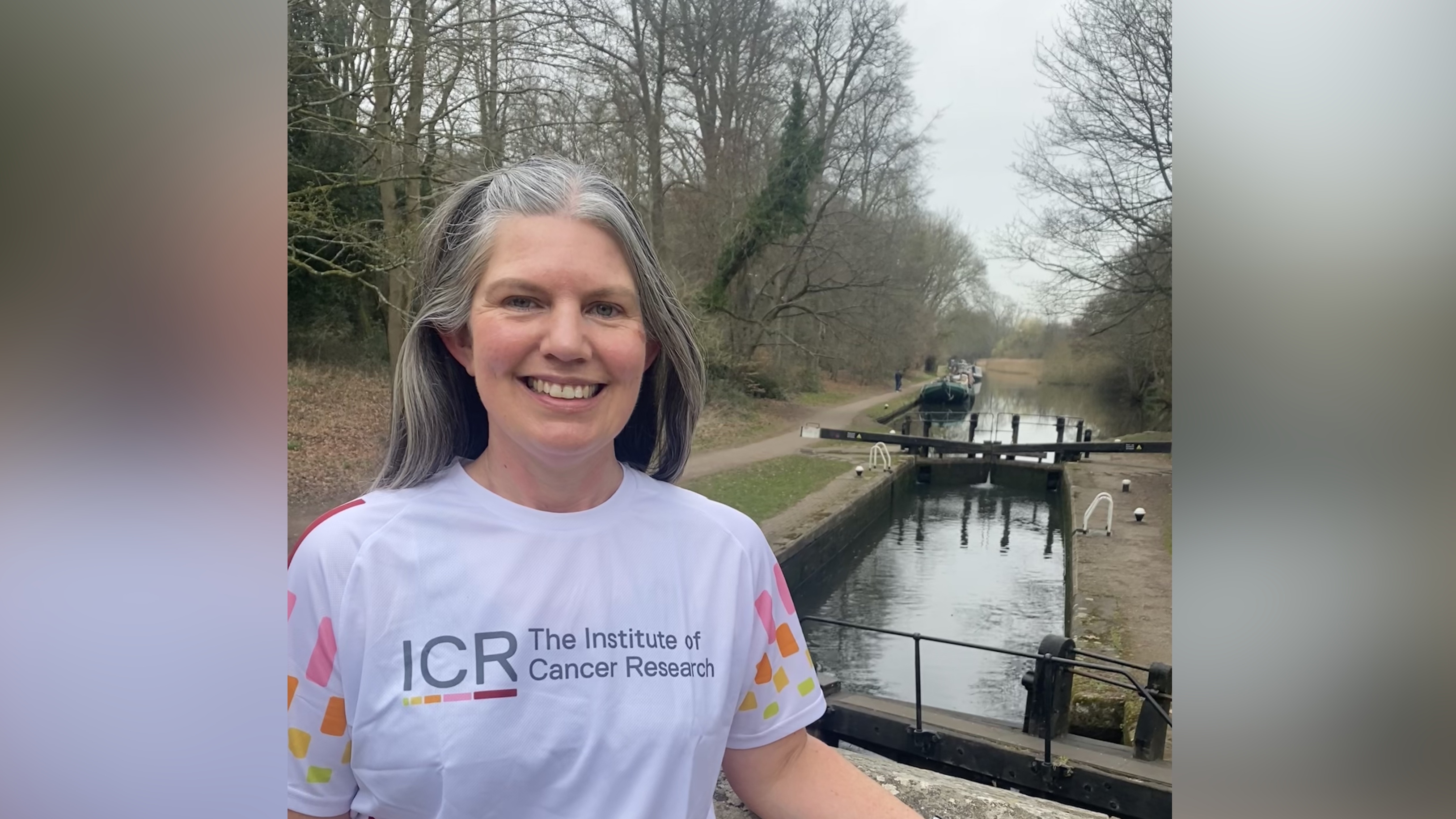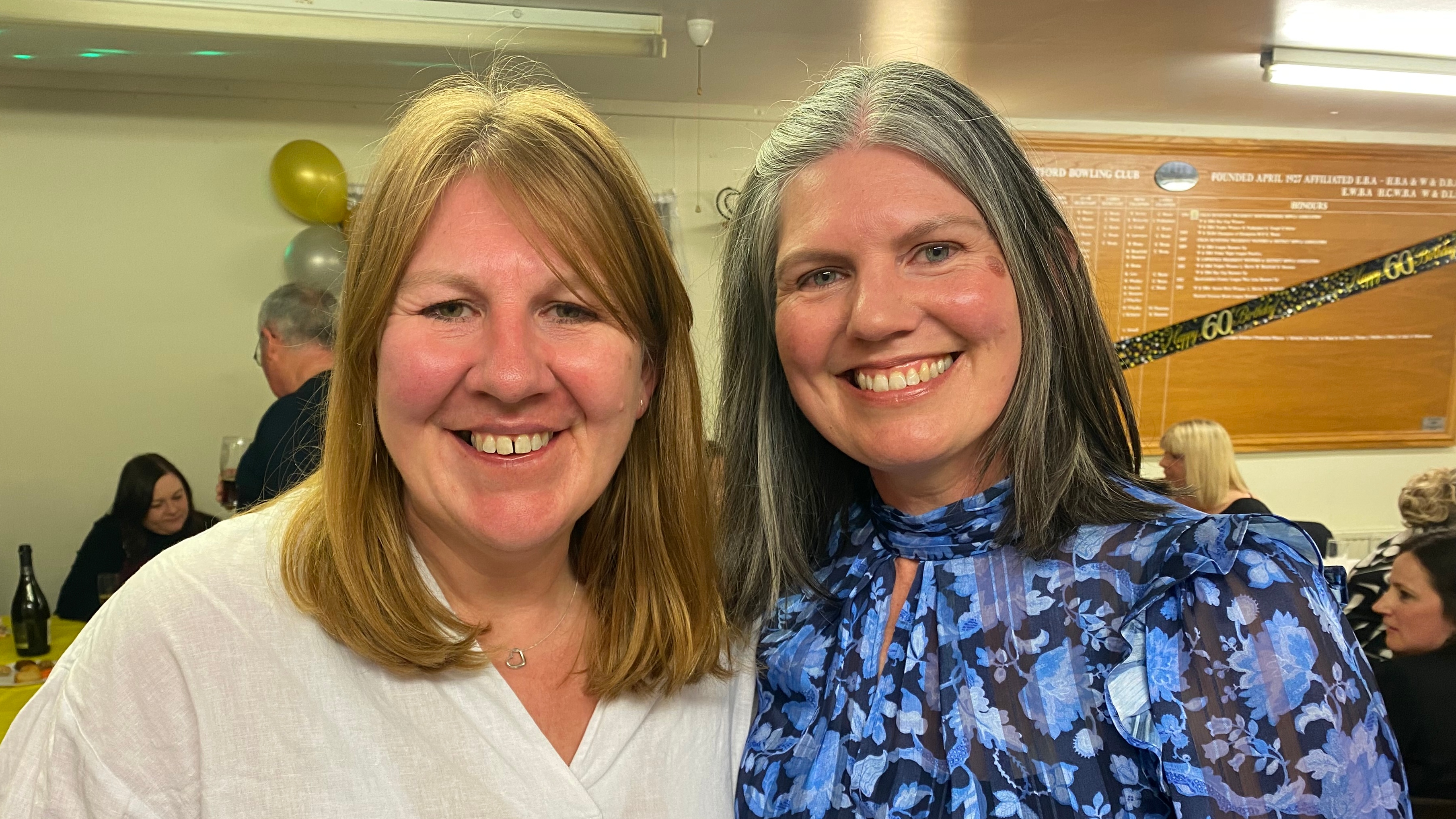“During my cancer treatment, running a marathon became my goal” – Mary’s story
Mary Nassiri, 47, was diagnosed with breast cancer in March 2021, just six months after her sister had received a similar diagnosis. During her treatment, she promised herself that once she recovered, she would run a marathon. Now, four years on, she is preparing to take part in the 2025 London Marathon and in doing so, she is raising funds for our vital research.

In February 2021, I had a telephone consultation with my GP to discuss a lump that I could feel in my breast. We were just coming out of Covid lockdown and the world was still a rather strange place. I was 43, with three young children under the age of 10.
At the time, my sister, who is three years older than me, had just finished treatment for DCIS, an early non-invasive breast cancer. When I mentioned this to my GP, I was immediately referred to the breast clinic.
My sister’s diagnosis in 2020 was a huge shock. I never expected either of us to be diagnosed with breast cancer in our 40s. It was something I had only considered as a possibility much later in life. My kids were so young and still needed me so much. So, when the GP referred me to the breast clinic, I never thought I would be told I had breast cancer, despite my sister’s recent experience.
Ironically, the lump I had found turned out to be non-cancerous. But a mammogram revealed white spots throughout my breast, which I was told was an indication of widespread DCIS. I had an ultrasound and biopsy the same day and was sent home believing that I probably had DCIS breast cancer in three areas. If this was confirmed, I would need a mastectomy. I was told to come back a week or so later and to bring someone with me.
I was hopeful and optimistic that any cancer had been caught at an early stage, and would be treatable with surgery. My sister had had a lumpectomy followed by radiotherapy. I felt I could do this too – but I hadn’t considered the possibility of what happened next.
My husband came with me to the clinic. We had barely sat down with the doctor before he launched straight into all the different surgical options that were open to me. He confirmed my diagnosis of DCIS breast cancer and immediately booked me in for my operation. It was incredibly overwhelming.

Image: Mary (right) with her sister (left)
‘I wasn’t prepared for this – it was terrifying’
By chance, he was the same surgeon who had treated my sister six months earlier. We discussed genetic testing, but I was advised that as this could take several months, I should have the single mastectomy now to treat the problem we knew about. Mentally, I accepted the prospect of surgery, but assumed this would be the end of it. I did not consider that I might need further treatment afterwards. I later had genetic testing and was not found to carry the BRCA mutation.
My surgery took place at the end of March 2021, but when I returned to the hospital for my follow-up appointment a few weeks later, I wasn’t expecting the news that greeted me. Tests had also found invasive breast cancer. The tumour was small, but it was aggressive. I was told I needed chemotherapy and long-term hormone treatment. I wasn’t prepared for this and it was terrifying.
There were no traces of cancer found in my lymph nodes, but following an Oncotype test (which analyses the activity of genes that influence how likely a cancer is to grow and respond to treatment), I was given the choice of whether to go ahead with chemo. While the medical team were confident they had removed everything, it was explained to me that chemo would ‘mop up’ any cells that had slipped through the net. I looked at the numbers from the Oncotype test, which gave me a series of figures and my chances of being alive after various numbers of years.
My children were still so young and of course I wanted to live for another 20 years, so I chose to go ahead with the chemo. It started six weeks after my surgery in mid-May and consisted of four rounds in total. I was fortunate in that I didn’t lose all my hair due to using a cold cap, although it was very thin and I cut it short. And there were other unpleasant side effects, for example, my sense of taste went, making even my favourite comfort foods taste metallic.
My chemo finished in mid-August. I started taking Tamoxifen just after my last session and I have been on it ever since. I was worried about it beforehand, afraid of the unpredictability, the menopausal symptoms and the fact that it would be something I would need to take long-term, but to be honest, it has not been as bad as I thought it would be. I continue to have regular breast screening every year.
‘It was hard to make sense of it or find any answers’
Now, four years on from my diagnosis, I feel positive about the future. Going through treatment, I thought a lot about how I would live my life afterwards. It was hard to make sense of it or find any answers. My sister and I both had similar cancer experiences, yet our lives and lifestyles had been so different. In the end, I realised that so much of what I had been through was out of my control and so much of what might happen in the future was out of my control. But I was determined to optimise the things that I could control.
I made the decision to reduce the stress in my life. I cut down my working hours to create a better work-life balance. I focused on improving my lifestyle, diet and exercise regime. With young children and my focus very much on my family, I became aware that I also needed to do something for myself. I was struck by the realisation that you never know what is round the corner, so I set myself a bucket list of goals. I wanted to climb a mountain – and now, once a year, I go on a hiking weekend with a friend. I started having piano lessons again, and I have just completed my Grade 7.
I had always prioritised running. Before becoming ill, I had completed a few half marathons. I had always secretly wanted to do a marathon, but was not sure I would ever achieve it or be able to complete one. However during my treatment, this became my goal. I promised myself that when I was better, I would achieve it, and my long-term goal was to do it for a cancer charity.
‘I am grateful for the work of cancer researchers in the past’
I come from a science background and work as a perfusionist in cardiac operating theatres, so I understand and value the importance of research. Anecdotally, it feels as if far more young people these days are being diagnosed with cancer. Even within my family, friendship circle and work colleagues, I am aware of several people who have been diagnosed with breast or bowel cancer in their thirties. There are so many more people being diagnosed with cancer than when I was growing up – and this has motivated me to want to support more research in this area.
I feel very lucky that I was diagnosed early, treated successfully and that I am now well. I know that this is down to research that has been done in the past. My type of cancer may have been quite straightforward to treat, but new trials and the discovery of new drugs will play a crucial part in better outcomes for those with harder-to-treat cancers. I am grateful for the work of cancer researchers in the past and I know that if any of my family or friends were to be diagnosed with cancer in future, it will be cancer research that helps them.
As I train for the London Marathon, I am starting to feel nervous and anxious about the long distances ahead of me. I am running distances that I have never run before. But thinking about the reason that I am doing it and the money that I am raising keeps me positive, determined and excited to complete it.
To support Mary and help raise fund for our vital research, visit Mary’s JustGiving page.